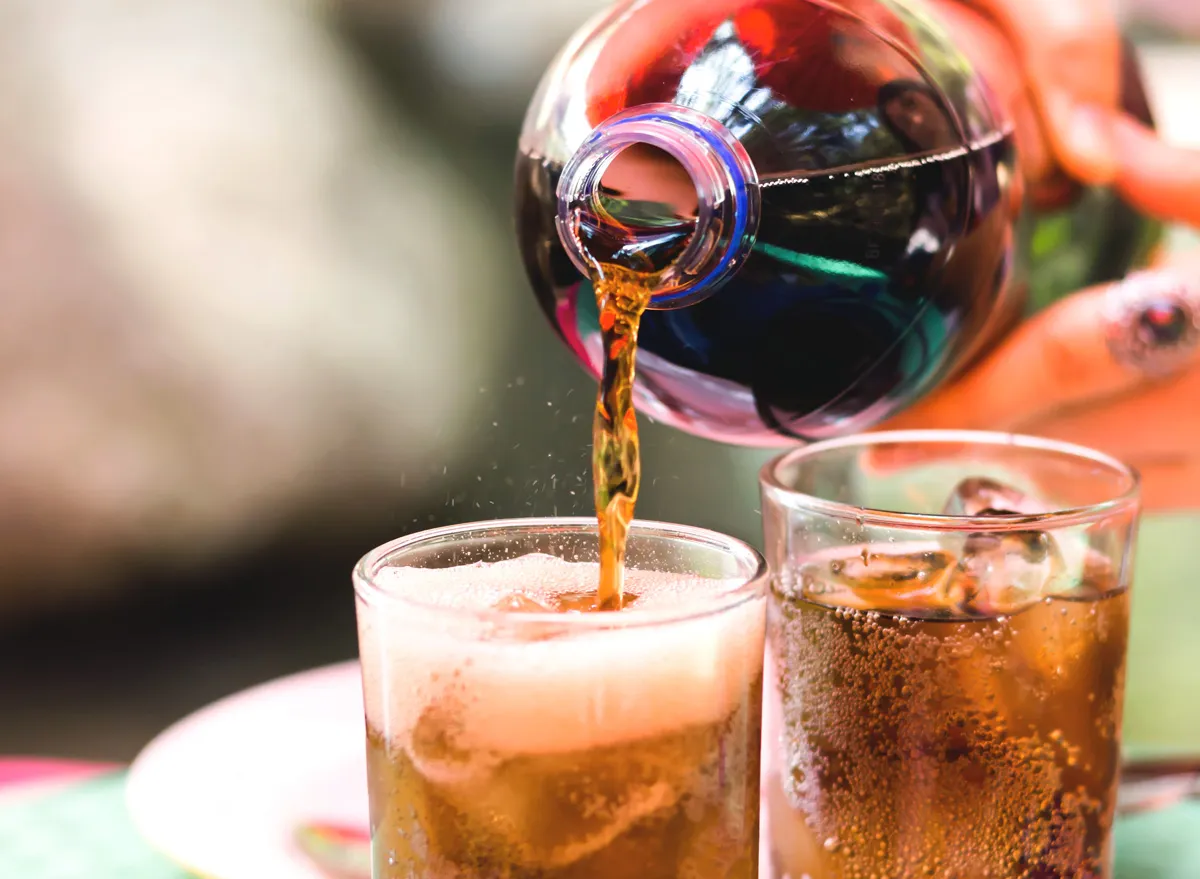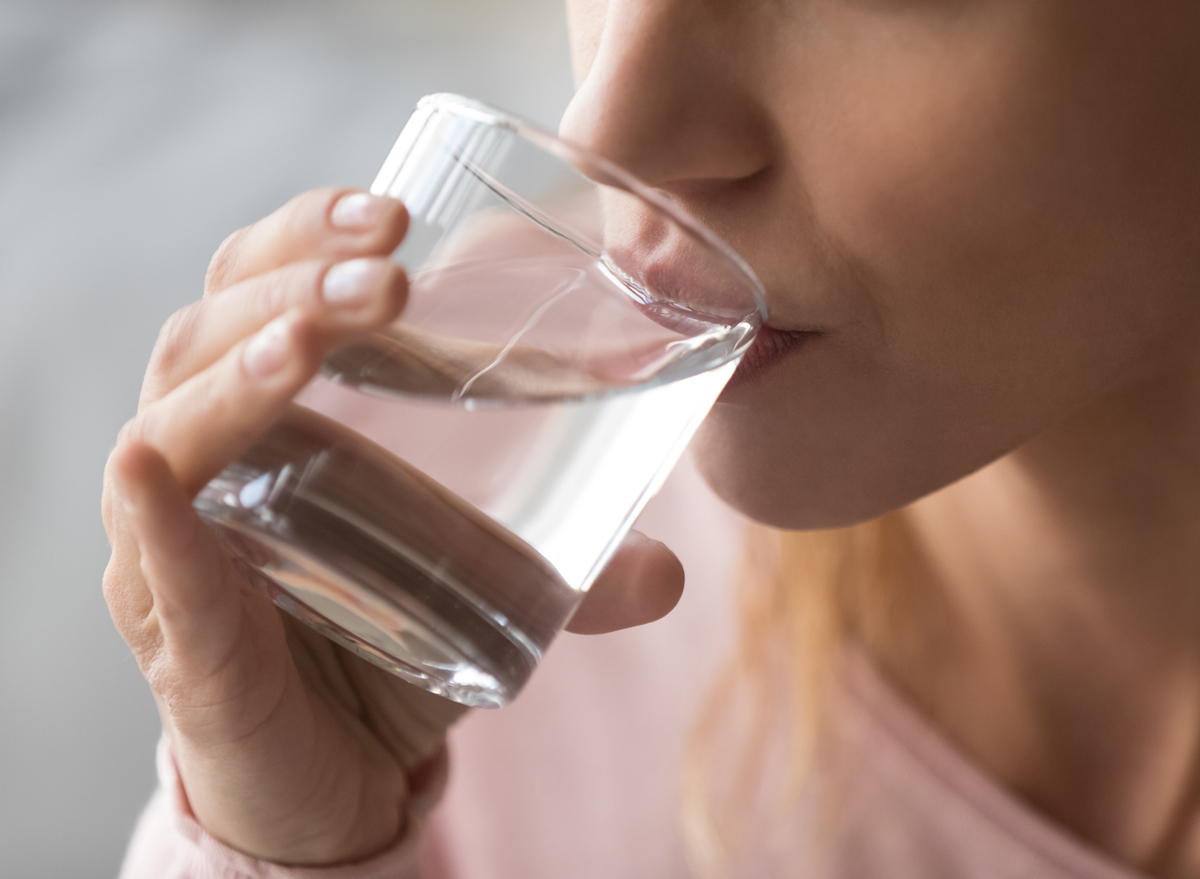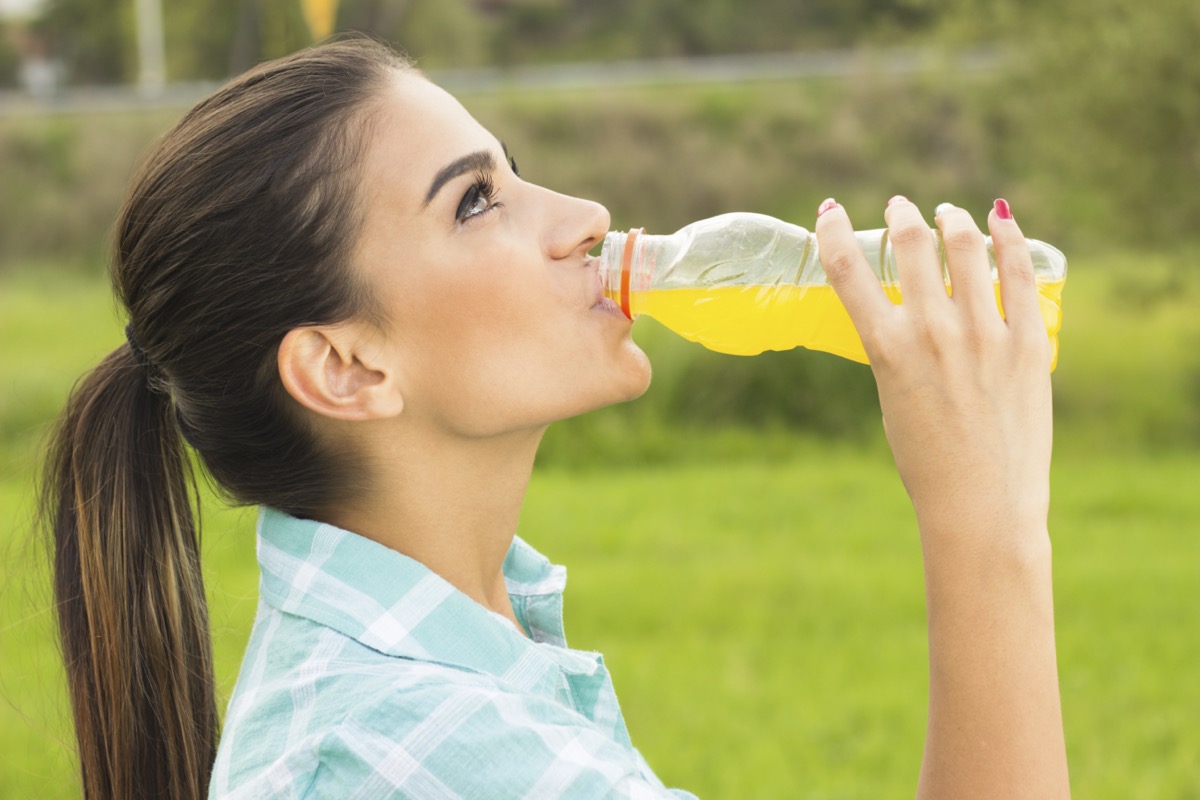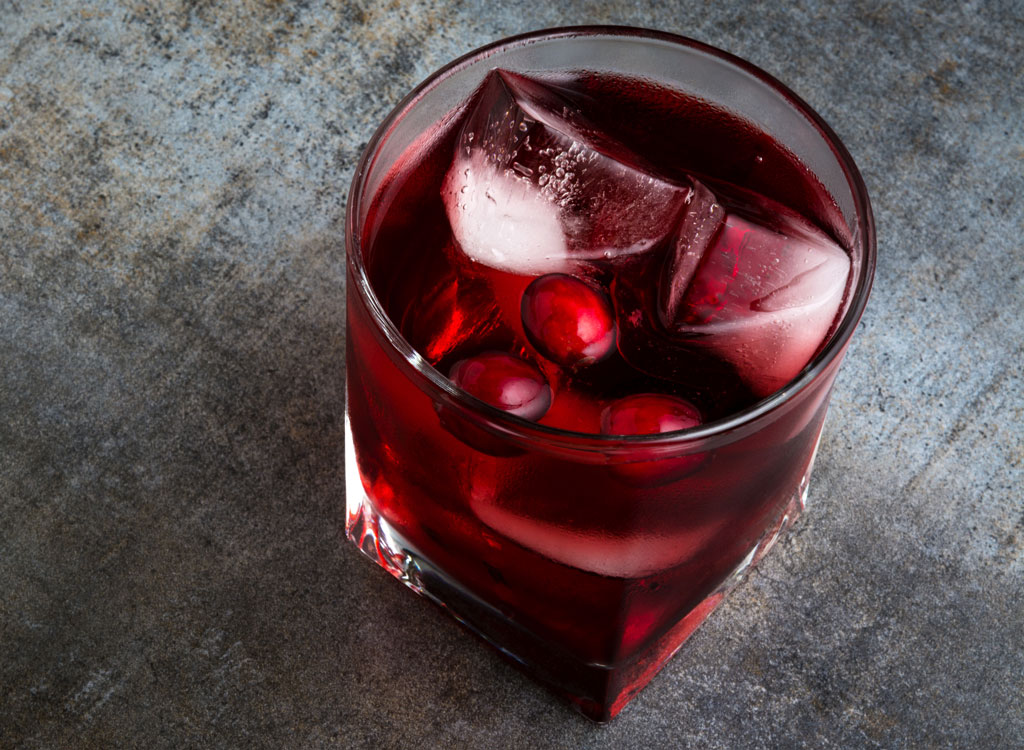Drinking Habits to Avoid If You Want a Better Immune System, Say Dietitians

With cold and flu season fast approaching, you may be eager to give your immune system a leg up to prevent viruses and other germs from knocking you down for the count. While adding certain supplements to your routine, eating healthy foods, and steering clear of folks who might be sick are good places to start, there's one surprising way you may be suppressing your immune system without realizing it: with your drinks.
If you want to protect your immune system and stay healthy, read on to discover which drinking habits registered dietitians say you should avoid. And if you want to improve your health fast, check out The 7 Healthiest Foods to Eat Right Now.
Drinking soda

You know soda's no friend to your waistline, but experts say it's also a poor choice when it comes to your immune health.
"Soda is awful for the immune system," says Stacy Roberts-Davis, RD, LDN, founder and owner of Flavorful Nutrition LLC. "Soda is full of sugar or artificial sweeteners which are known to lower the immune system. This makes it harder to fight infections."
Not drinking enough water

If you're not drinking enough water throughout the day, you may find yourself more than just thirsty: you could find your immune health suffering, too.
"Water transports immune system-supporting nutrients, such as vitamin C, throughout the body and is an important part of our body's natural detoxification processes," says Catherine Johnston MS, RD, LD, registered dietitian and owner at Catherine Johnston Nutrition, LLC. While Johnston notes that what's enough for one person may not be enough for someone else—for instance, if you're exercising intensely on a regular basis—but that 64 ounces of water a day is a good place to start, increasing your intake depending on your particular needs.
Consuming too much caffeine

It's all too easy to have that morning coffee turn into a whole pot, especially when you're feeling fatigued. Unfortunately, if you're over-consuming caffeinated beverages, your immune health may pay the price.
"Drinking too much caffeine (more than 400 milligrams per day) or having caffeine too late in the day can negatively affect your sleep, which can have major immune system impacts," says Johnston. However, that doesn't mean you have to give up your caffeine boost altogether.
"Many caffeine-containing beverages such as coffee and tea have anti-inflammatory benefits that may be supportive to your immune system, so limit yourself to a few servings early in the day," Johnston suggests.
Drinking too much alcohol

That hangover may very well be the least of your worries after a night of heavy drinking.
"Your body prioritizes breaking down alcohol quickly which can impair immune response, even after a single binge-drinking episode," says Johnston.
Over time, these effects may become more pronounced. "Long-term alcohol intake negatively impacts the function of the immune system supporting cells, increasing your chances of getting sick," Johnston explains.
RELATED: Best Way to Boost Your Immunity Now, Says Science
Drinking highly processed beverages

If that beverage you just bought is full of ingredients you can't pronounce, drinking it might have negative effects on your immune health in the long run.
"There is a clear link between our gut bacteria and immune system, but many food additives including emulsifiers, thickeners, and artificial sweeteners have been found to be potentially harmful to our healthy gut bacteria. More research is needed to determine specific recommendations, but check labels of your commonly consumed beverages as there is often an additive-free option," says Johnston.
Drinking too much fruit juice with added sugars

While fruit juice is often touted as a healthy beverage, it may be anything but when it comes to your immune health—especially if you're drinking it in excess.
"Juice with added sugars is not much, if any, better than drinking sugary sodas," says Alicia Galvin, RD, a resident dietitian for Sovereign Laboratories. For example, some cranberry juice cocktail juices are sweetened with high fructose corn syrup and other added sweeteners that can amount to upwards of 50 grams of added sugar—that's almost as much as a can and a half of Coca-Cola. While some juices, like orange juice, contain excellent levels of immune-supporting vitamin C, other juices can be lacking in these micronutrients—along with macronutrients like fiber. "Juice also does not contain the beneficial fibers that are needed to feed your good gut bacteria, which are critical for immune health."
For more great health tips sent straight to your inbox, sign up for our newsletter!
Read this next:
- The #1 Food to Eat to Boost Your Immune System, Says Dietitian
- These Foods Can Weaken Your Immune System, Say Experts
- 30 Best Immune-Boosting Foods








